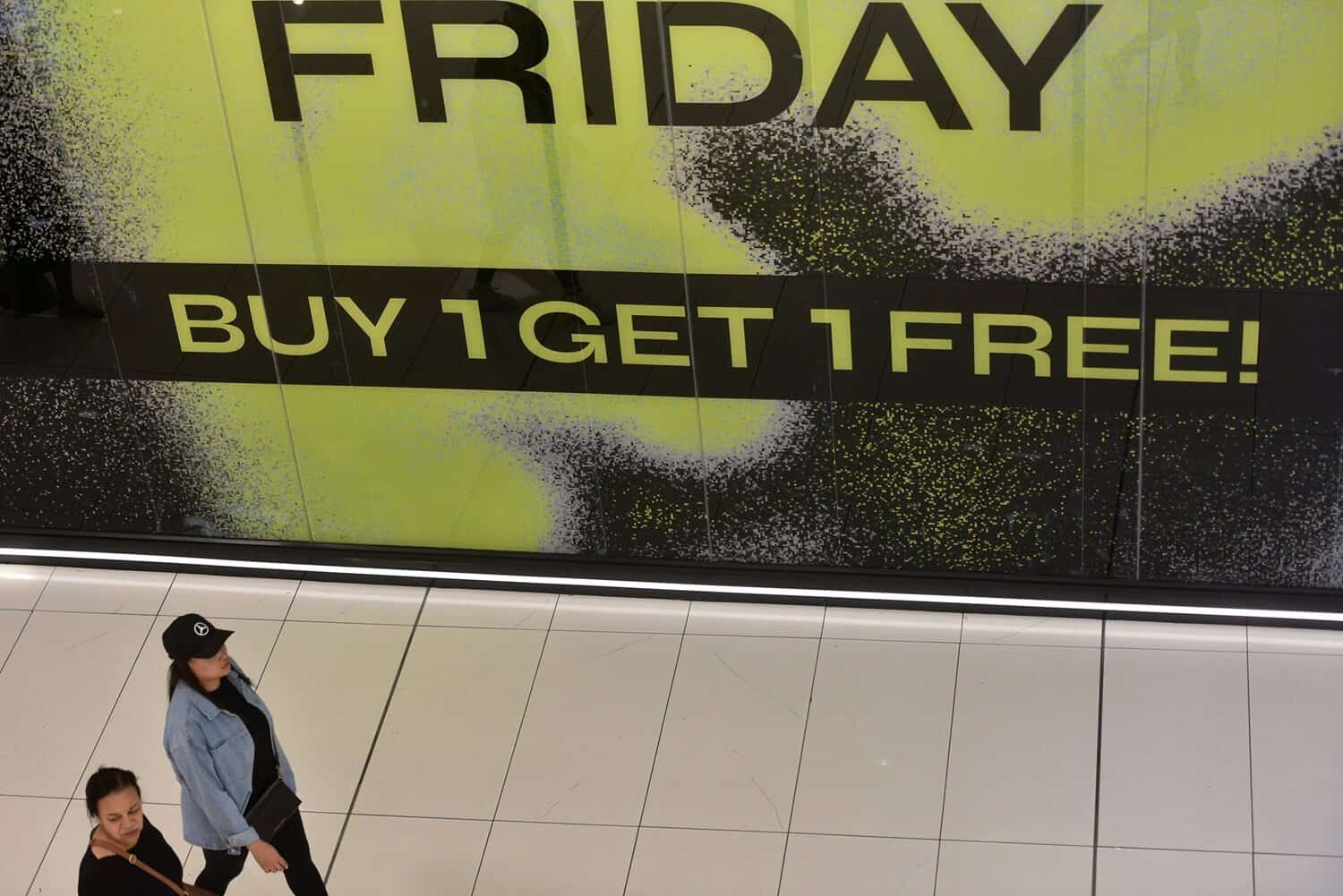Experts say consumers have cash for Black Friday, boosted by payday timing, stokvel payouts and two-pot withdrawals despite tight budgets.

South Africans are expected to spend as much as they can on Black Friday today, no question about that, but how much will they spend?
And while various tailwinds over the past few months made it possible for consumers to have a little more cash to spend, what will they buy?
But do consumers really have the money to spend on Black Friday?
Economist Roelof Botha says they do. According to the Altron FinTech Household Resilience Index (Afhri) the average household is more than 2% better off than a year ago. He compiled the index.
“However, it should be noted that withdrawals via the two-pot retirement system of dipping into pension fund savings played a significant part in the Afhri’s improvement.”
ALSO READ: Hey, big spender: R122 195 for a couch on Black Friday?
Will slight decline in consumer confidence matter on Black Friday?
“Lower interest rates also helped, but more and deeper interest rate cuts are necessary to boost the most important driver of household financial security, namely formal sector job creation.”
Isana Cordier, managing executive for the consumer sector at Absa CIB, says consumer sentiment remains under pressure, with Absa’s Macroeconomics Research team reporting a slight decline in confidence in the third quarter, despite easing interest rates and inflation.
“However, spending patterns suggest intent.
“Last year saw card spending increase by 4% and transaction volumes grow by 2%, reversing September’s declines,” Cordier said.
“Black Friday performance is strongly tied to payday timing.
“When it falls after payday, spending surges, but before payday growth is modest.”
Liquidity boosters, such as stokvel payouts, added significant spending power in the fourth quarter, Cordier said.
“This year, many consumers will have funds available for Black Friday since it occurs after payday, although their budgets may be limited by debt commitments.
“In addition, buy now, pay later services are expected to lift sales this year by offering short-term, needs-based credit to younger and non-credit consumers, enabling participation even when cash flow is tight.”
ALSO READ: Shops can expect strong Black Friday thanks to e-commerce growth, improving economy
Absa expects 10% increase in spending
Absa forecasts a 10% increase in Black Friday spending, with total transactions projected to exceed R4.5 billion and nearly 9.75 million transactions processed.
Elize Kruger, an independent economist, said consumers would have money to spend on Black Friday, thanks to several tailwinds this year that supported household spending and helped position the retail sector as one of the standout performers in the economy this year.
“Various developments are likely to have a positive impact on this year’s Black Friday and Black November spending, including lower inflation, the return of real salary growth, two-pot retirement system withdrawals and a stronger rand that also supported consumer pricing.”
ALSO READ: How to avoid a hangover from Black Friday and Christmas spending
What will South African consumers buy?
Botha said when taking the latest breakdown of retail spending as a yardstick, the categories for clothing, furniture, appliances and hardware (home improvements) are set to benefit.
“Electronic equipment seems to always be in vogue, especially due to the relentless improvement to technology. Sales of cellphones, tablets and iPads will certainly increase.”
Kruger said with consumers still highly price-sensitive, Black Friday could prompt more people to stock up on attractive deals for the upcoming festive season.
“Given the improving economic environment and lower cost of credit over the past year, bigger-ticket items, such as appliances, are likely to see stronger demand compared to recent years.”
ALSO READ: Black Friday is no longer about luxuries but about survival
Will essentials dominate?
Cordier expects that essentials will dominate spending, with food and grocery businesses continuing to lead growth.
“In-store purchases are expected to focus on food and clothing that grew by double digits in 2024.
“Online spending will likely lean toward electronics and computers, home and garden, business services, clothing and food. Deferred big-ticket items, such as electronics and computers, feature prominently during Black Friday weekend including Cyber Monday, although they are not top categories year-round.
“Therefore, we expect an uptick in this category during this period. BNPL is also likely to drive purchases of higher-value items online, as consumers spread payments without incurring traditional credit costs.”
She expects that transaction volumes will continue to exceed total spend, signalling smaller baskets and price sensitive choices, as consumers prioritise affordability and essentials while deferring non-essential purchases to promotional periods.






